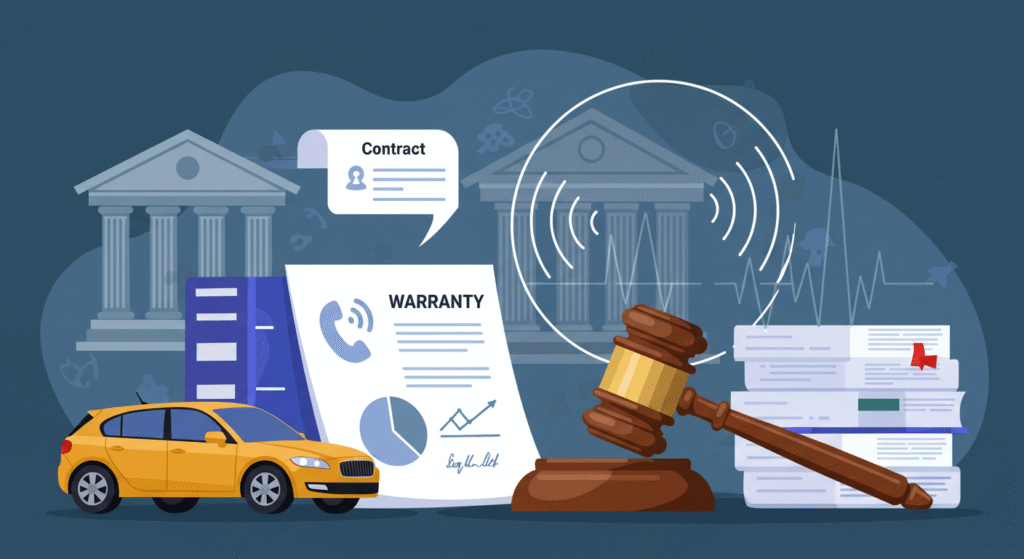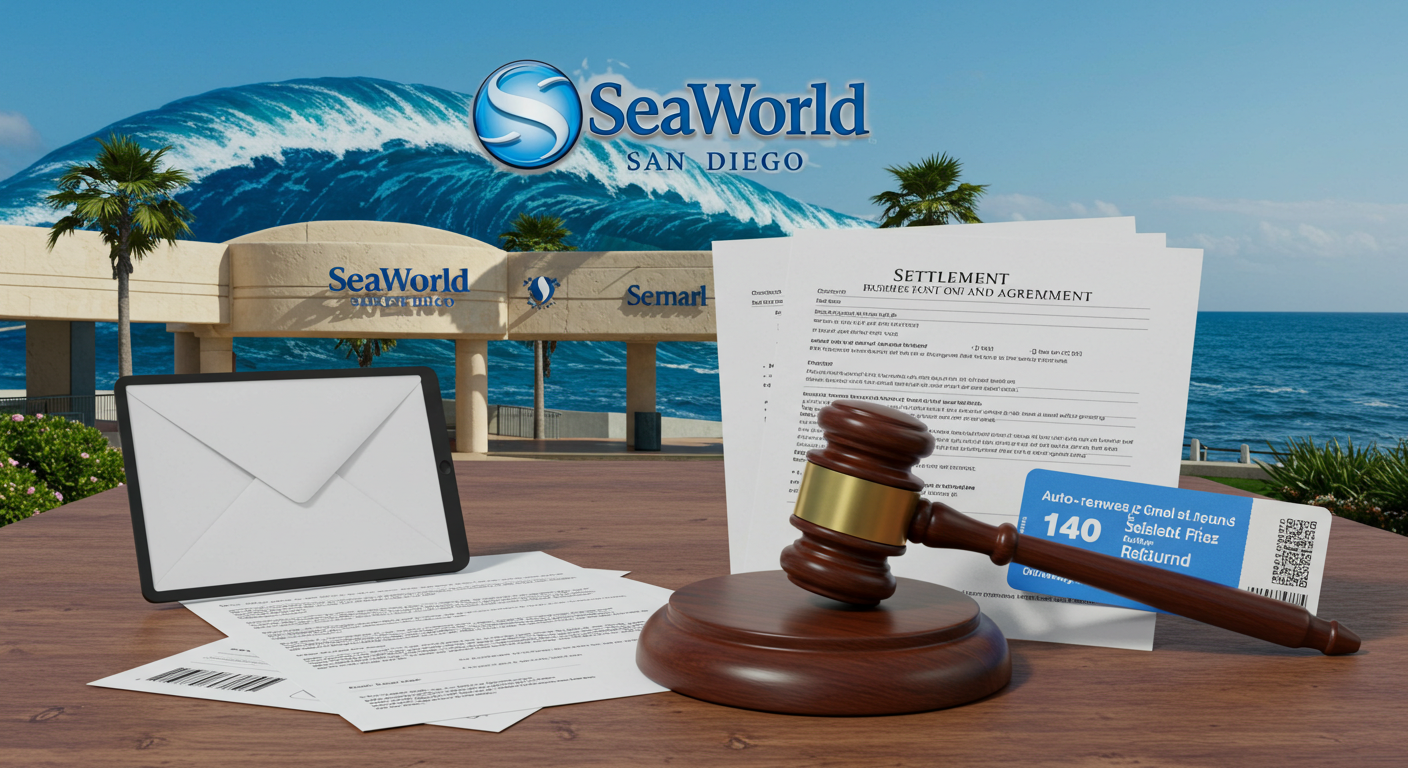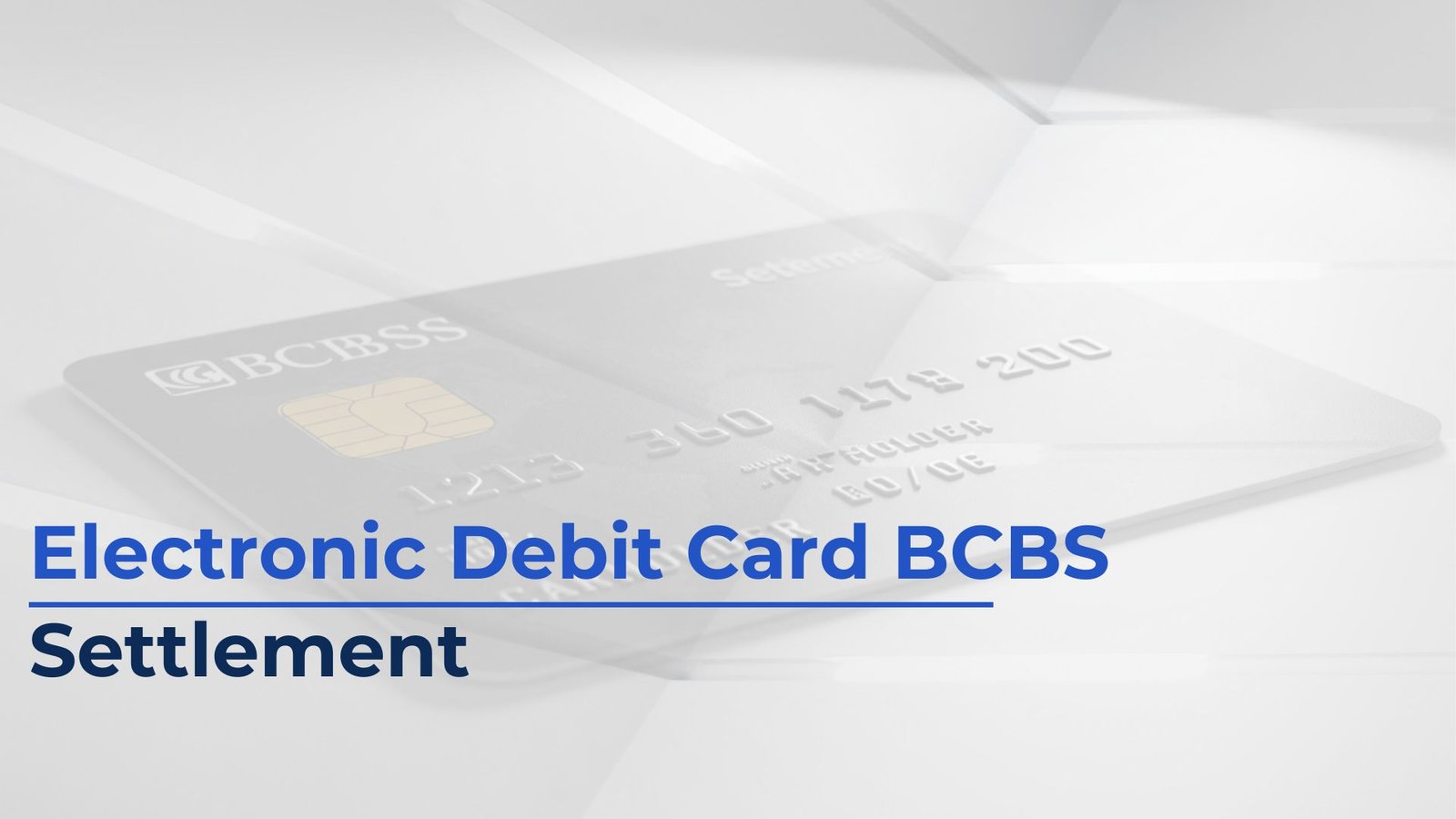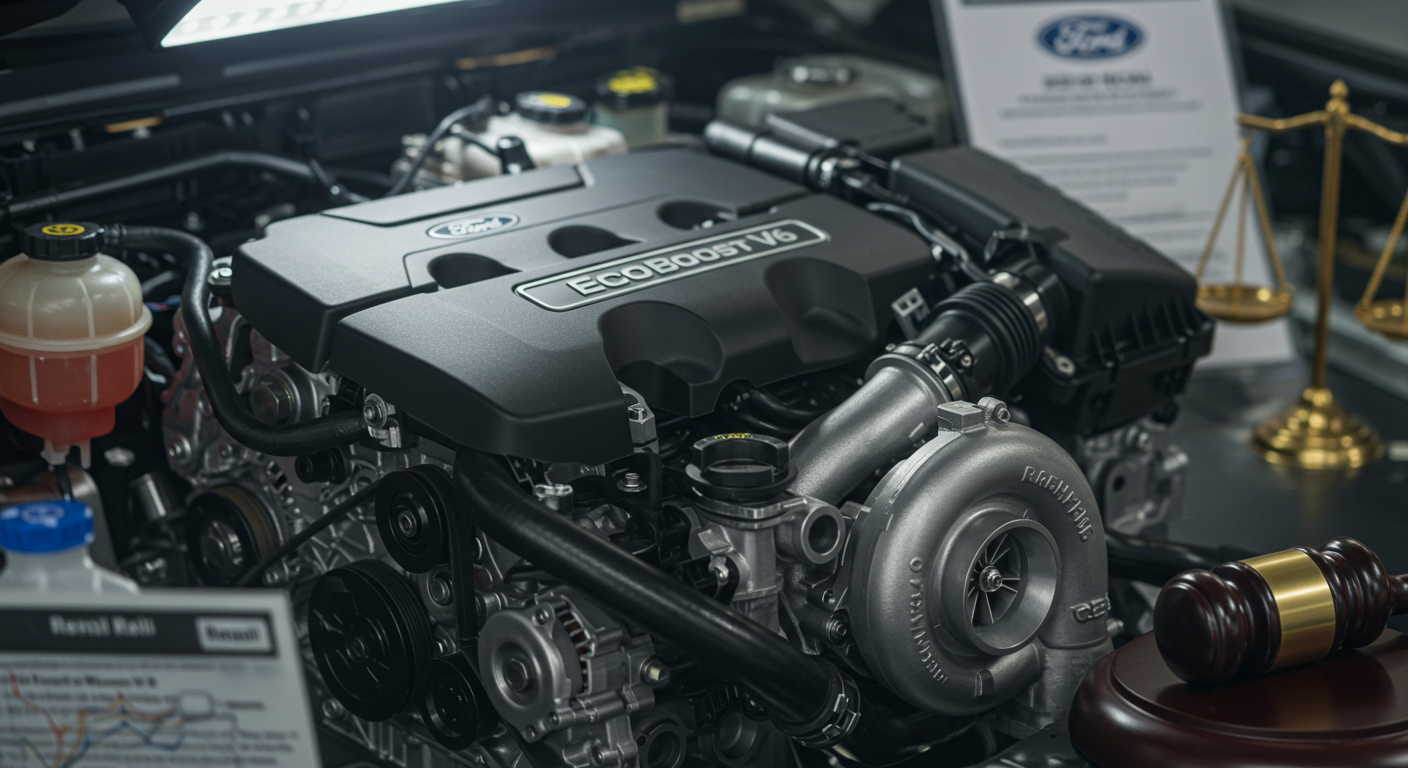Hi, I’m Orland Howell. I’ve spent four years writing about lawsuit settlements in a way that’s easy to understand. My job is to make complicated legal stuff clear for regular people. This guide explains the CarGuard lawsuit in very simple wordings. You’ll learn what happened, what’s new in 2025, how to get money if you were affected, and how to stay safe. Everything is true and easy to follow. Let’s start!
What’s the CarGuard Lawsuit About?
CarGuard Administration, Inc. sells car service contracts. These are like extra warranties for your car. They promise to pay for repairs if your car breaks down after the regular warranty ends. People buy them to avoid big repair costs. But some customers said CarGuard didn’t do what it promised.
In 2021, a big lawsuit started. It’s called a class-action lawsuit, which means a few people sued for many others who had the same problem. The issue was robocalls. Robocalls are those annoying phone calls made by a machine. The lawsuit said CarGuard and its partners, like Legion Auto Protection and WalCo Funding, made too many of these calls to sell their contracts.
Why is this bad? Many calls went to people who didn’t want them. Some of these people had their phone numbers on the National Do Not Call Registry. This is a free list you can join to stop sales calls. The law says companies must respect this list, but CarGuard called anyway. They used machines to call lots of people without asking first.
This breaks a law called the Telephone Consumer Protection Act (TCPA). The TCPA, made in 1991, protects you from unwanted calls. If a company breaks this law, they can be fined up to $1,500 for each call. When thousands of calls happen, these fines add up fast. That’s why this lawsuit is a big deal.
In the lawsuit, one man said he got at least two robocalls in early 2021. His number was on the Do Not Call list since 2003. He heard a long pause before someone spoke, which means a machine made the call. The calls tried to sell him a CarGuard car contract.
The lawsuit was filed in a California court. It was for anyone in the U.S. who got these calls from CarGuard or its partners. The goal was to stop the calls and give money to people who were bothered.
I’ve written about many lawsuits like this. Companies use robocalls to save money, but they often break the law. If you’ve ever hung up on a robot voice selling car warranties, this lawsuit might include you.
Who Is CarGuard?
CarGuard started in 1999 and is based in Missouri. They work with car dealers and online sellers to offer service contracts. These contracts pay for things like engine repairs, transmission fixes, or towing. They cost between $1,000 and $3,000, and you can pay monthly or all at once.
CarGuard’s ads say their contracts give you “peace of mind.” They show happy drivers who don’t worry about car breakdowns. But the lawsuit focused on how they sell. Partners like Legion Auto Protection called people to sell contracts, and WalCo Funding took payments. The process was: call, sell, get paid.
CarGuard says they’ve sold millions of contracts. But growing big brought problems. Besides robocalls, some customers complained to the Better Business Bureau. They said CarGuard didn’t pay for repairs they promised or had slow customer service. These complaints aren’t part of the lawsuit, but they show why trust matters.
In my four years writing about lawsuits, I’ve seen companies like CarGuard need happy customers to succeed. One bad call can make people distrust them. Laws like the TCPA help keep things fair.
Timeline of the CarGuard Lawsuit
Lawsuits take a long time. Here’s what happened in the CarGuard case, step by step.
2021: Lawsuit Starts
In July 2021, a case called Bacarri v. CarGuard Administration, Inc. was filed in California. It named CarGuard, Legion Auto Protection, and WalCo Funding. The people suing said robocalls broke the TCPA law. The calls went to people on the Do Not Call list without their okay.
2022: Court Fights
In August 2022, CarGuard won a similar case in Pennsylvania. The judge said CarGuard told its sellers not to use robocalls, so the case was thrown out. This helped CarGuard show they tried to follow the law. But the California case kept going, with lawyers arguing about who was to blame.
2023: Gathering Evidence
The court looked at evidence, like phone call records from people who sued and papers from CarGuard showing they told sellers not to use robocalls. The court said the case could continue. Some callers were approved as a group for the lawsuit.
2024: Talks for a Deal
CarGuard and the people suing started talking about a deal. They tried mediation, where a neutral person helps both sides agree. There were hints of a settlement. The Federal Trade Commission (FTC) also looked at car warranty sellers, which added pressure, even though it wasn’t just about CarGuard.
What Can You Get from the Settlement?
The settlement helps people who got robocalls. Here’s what you get, explained simply.
As of October 2025, no public settlement has been finalized. Courts are still reviewing claims, and deadlines may be announced later. Always check the official court docket or settlement administrator site for real deadlines.”
CarGuard also promised to do better:
- Teach sellers about TCPA rules.
- Respect the Do Not Call list.
- Check calls to make sure they follow the law.
This isn’t just about money—it’s about making companies act right. I’ve seen settlements like this change how companies work. It’s a win for consumers.
How to File a Claim: Easy Steps
Want to get your money? It’s simple. Follow these steps below.
- See If You Qualify
Did you get a CarGuard sales call between January 1, 2018, and December 31, 2024? Was your number on the Do Not Call Registry? If yes, you can file a claim. - Get Your Information
Write down when the calls happened, what number called you, and what they said. Phone bills help but aren’t needed. - Go to the Website
Visit CarGuard Settlement Website. - Fill Out the Form
Put in your name, address, phone number, and call details. It takes 5-10 minutes and costs nothing. - Send It and Wait
You’ll get an email saying they got your form. Checks will come 60-90 days after approval. If they say no, you can ask them to look again.
Tips from my experience: File early because websites can crash near deadlines. Save a copy of your form.
Over 15,000 people have filed claims. Don’t wait—$50 can buy gas or a car wash.
What If Your CarGuard Contract Didn’t Work?
The robocall lawsuit is just one issue. Some people said CarGuard didn’t pay for repairs they promised. Common problems include:
- Repairs not covered, even if the contract said they were.
- Slow payments, leaving cars stuck at repair shops.
- Hidden fees or rules not explained clearly.
These could lead to new lawsuits. In October 2025, lawyers are looking at claims about broken contracts, but no big case has started. Check ClassAction.org for updates.
If this happened to you:
- Read your contract. Look for the “exclusions” part.
- Save repair receipts and any letters saying they won’t pay.
- Talk to a consumer lawyer. Many only charge if you win.
Laws are different in each state. California and Florida have strong car warranty rules. Check your state’s attorney general website.
In my work with law firms, I’ve seen people get $1,000 to $5,000 for denied claims. It’s worth checking out.
How to Stay Safe from Bad Car Warranties
The CarGuard lawsuit teaches us to be careful. Car service contracts can help, but some aren’t good. Here’s how to protect yourself.
Watch for Bad Signs in Sales Calls
- Get a call you didn’t ask for? Hang up and add your number to DoNotCall.gov.
- Hear pushy words like “Buy now or lose coverage”? It’s a trick.
- Promises sound unclear? Ask for everything in writing.
Pick a Good Company
- Read reviews on BBB.org or ConsumerAffairs.com.
- Make sure the company is licensed in your state.
- Check A.M. Best ratings to see if they can pay claims.
Know Your Contract
- What parts are covered? What’s not, like normal wear?
- Do you pay a deductible first?
- Can you cancel and get money back?
Look at other options. Plans from AAA or car dealers might be cheaper. Many cars last 150,000 miles with good care, so you may not need a contract.
From my experience, about 70% of people wish they didn’t buy extended warranties. You might save that money for real emergencies.
What’s Next for Car Warranties in 2025?
In 2025, the car warranty world is changing. The FTC wants clearer ads. They might make companies use videos to explain terms. Lawsuits like CarGuard’s are pushing these changes.
Electric cars are a new challenge. Their batteries cost $10,000 to fix, so warranties need to cover them right. Watch for lawsuits about electric car coverage problems.
Lawyers expect a possible settlement, but nothing is confirmed yet. If they follow the rules better, they might earn trust again. We’ll see.
As Orland Howell, I’ve watched this industry closely. Lawsuits help you by making companies act fairly. Knowing your rights is your best tool.
Final Words: Take Charge Now
The CarGuard lawsuit shows how one company’s mistakes can bother thousands of people. But the settlement brings fairness. If you got robocalls, file a claim. If your contract didn’t work, talk to a lawyer. Don’t let tricky terms stop you.
Disclaimer
This article is for information only. It’s not legal advice. Laws vary, and your case might be different. Talk to a lawyer for personal help. All facts come from public court records and trusted sources as of October 5, 2025. No promises are made about results. The author and publishers are not responsible for what you do with this information.
Explore More:
Hawthorne Residential Partners Lawsuit — 2025 Complete Guide, Claims & Settlement Updates
Native Shampoo Lawsuit: The 2025 PFAS Investigation, Class Action Chances & What Buyers Need to Know

Orland Howell is a seasoned content writer with four years of deep expertise in crafting compelling and informative content about lawsuit settlements. With a keen understanding of legal nuances and a talent for translating complex topics into clear, engaging narratives, Orland helps law firms, legal professionals, and clients communicate effectively. His work spans blog posts, articles, whitepapers, and website content, all designed to educate, inform, and drive results. Passionate about empowering audiences with knowledge, Orland combines precision, creativity, and industry insight to deliver content that resonates and builds trust.






